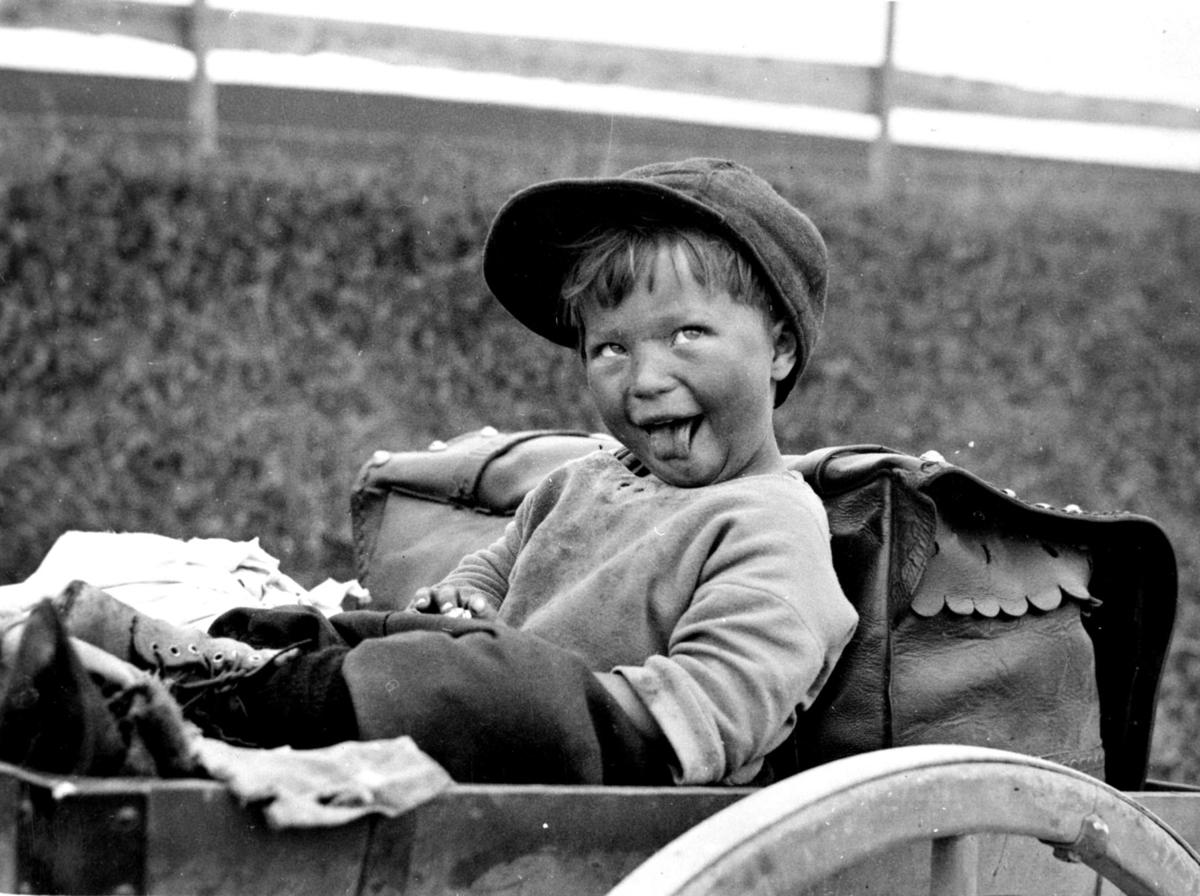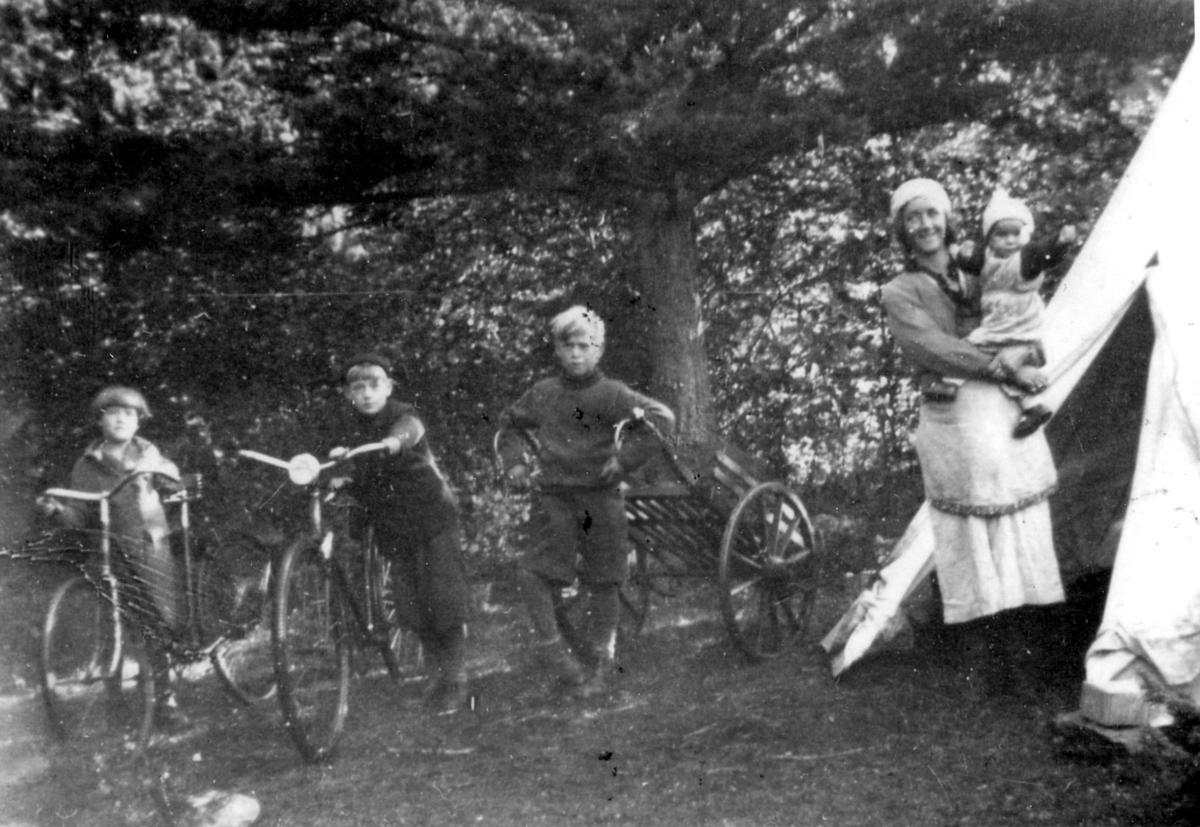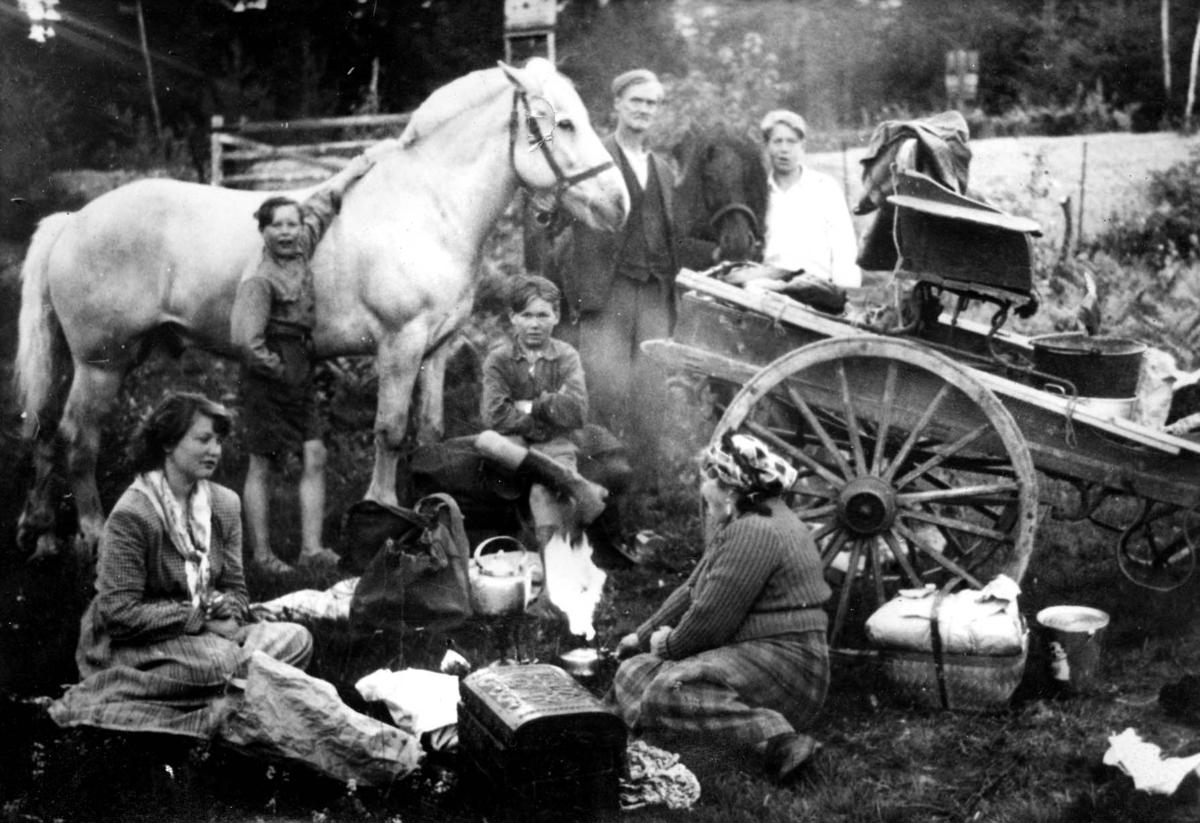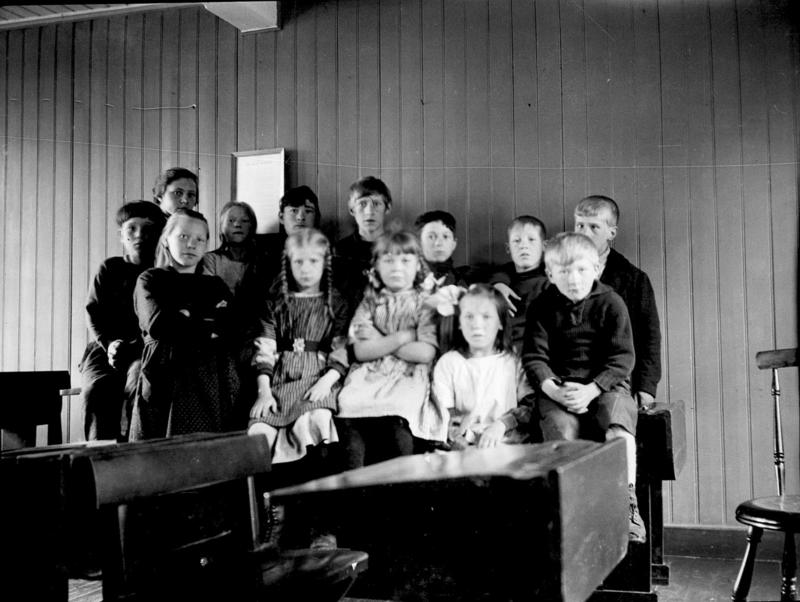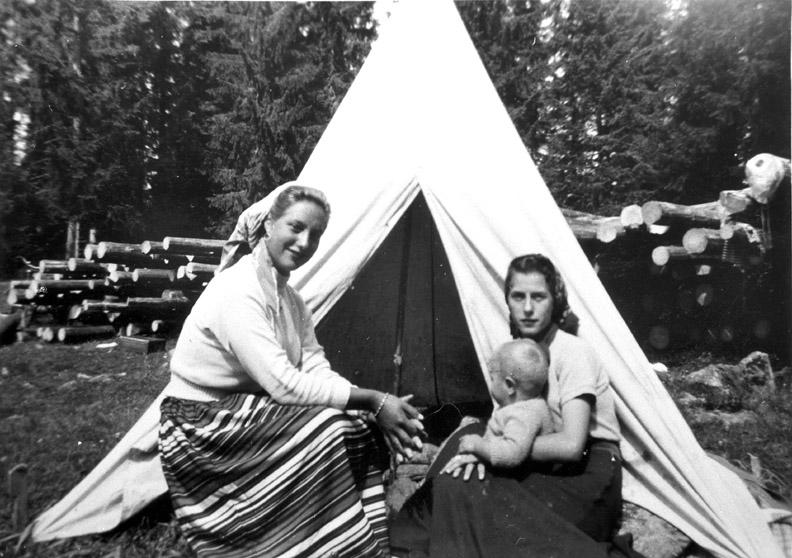According to the "Tater queen" Marie Lovinie Oliversen, it was common in a Tater family for the father to raise the boys and the mother to raise the girls. She explains that Big-Johan, her father, taught his sons how to use the knife and trade horses, while her mother taught the girls about trade and needlecraft. Being good at trading was the most important skill a Tater girl could have.
Children are still raised to respect and not to interrupt adults, and to help where they can. Using only the first name for an older relative is considered rude. Older female relatives are called aunt and elderly male relatives, uncle, followed by the first name. The children, and especially the girls, are well looked after by the family. The rules for what children are allowed to say and do are often more stringent among the Tater people than among other families in Norway.
- 1/3
Children playing with bicycles. Foto: Privat / Anno Glomdalsmuseet - 2/3
Traveler boy in a cart. Foto: Toten Økomuseum - 3/3
The Karlsen family takes a break, ca. 1950 in the Elverum area. Foto: Privat/ Glomdalsmuseet
It is a common prejudice that Tater people steal. However, they had their regular routes and returned to the same villages and farms every year. They therefore relied on stable and good relationships with the residents. If they stole from the people they were trading with and with whom they might also have stayed overnight, this would be very destructive. Learning to be honest was therefore an important part of the children’s upbringing.
Emma’s story illustrates this.
Emma explains:
"We had to behave well; if not, it was difficult to be invited inside. Dad was a tough man and when he scolded us, we knew he was the boss. Otherwise, he was kind. We had more respect for our dad than for our mum. If Dad got angry, we knew it was serious. Our mum often said she was going to spank us, but it never happened. I don't think there is anything wrong with setting kids straight. We learned once and for all. Today there is no upbringing, and the teacher is given a hard time if he tries to correct children."
"I remember a time when my brother and I had stolen something from a farm where we spent the night. I had taken a small doll and my brother had taken a sheath knife. I'd never had a doll, and the temptation was too much, so I took it with me. We left in the morning. After an hour, I took my doll out and my brother took the sheath knife out. We started playing, but our dad discovered it and made us tell him where these things came from. We got a good spanking, then Dad turned around and went back to the farm. We had to apologise to the farmer's wife and return what we had taken. The farmer’s wife felt sorry for me and said I could just keep the doll. I never stole anything again – not after the lesson my father taught me."
(Emma, born 1926)
